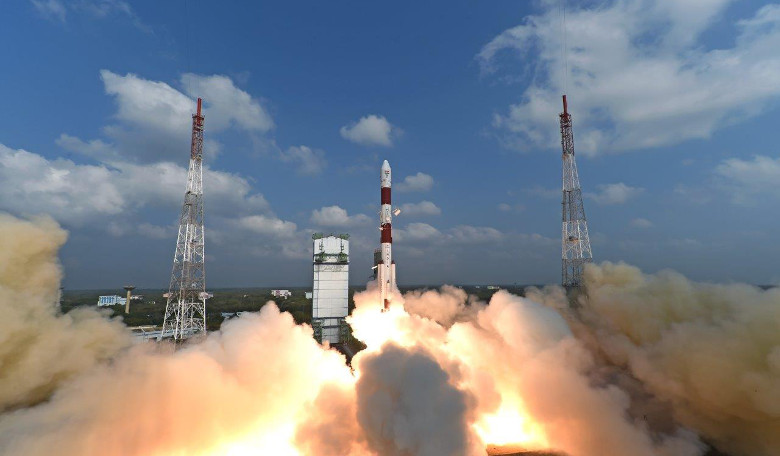India has catapulted itself into the spaceflight history books today by successfully launching 104 satellites on a single mission, overtaking the previous record of 37 satellites launched by Russia in 2014.
But former ISRO chairman G. Madhavan Nair expressed concern over the potential for such multi-satellite missions to create large quantifies of un-trackable space debris.
"One worry is that these are tiny satellites which at the best can have a life of one or two years - after that it really becomes space debris,” he said after witnessing the launch. “Since they are small in size, they may not be amenable for tracking and finding out their positions. They become passive and to that extent the worry is there."
ISRO's Polar Satellite Launch Vehicle launched the 714 kg Cartosat-2 Series Satellite along with 103 co-passenger satellites on 15 February 2017 from the Satish Dhawan Space Centre SHAR, Sriharikota.
This was the thirty-eighth consecutively successful mission of PSLV. The total weight of all the 104 satellites carried by PSLV-C37 was 1378 kg. All but three of the satellites are from foreign countries, most of them from the United States.
PSLV-C37 lifted off as planned at 0928 hrs local time, as planned. After a flight of 16 minutes 48 seconds, the satellites achieved a polar Sun Synchronous Orbit of 506 km inclined at an angle of 97.46 degree to the equator (very close to the intended orbit) and in the succeeding 12 minutes, all the 104 satellites successfully separated from the PSLV fourth stage in a predetermined sequence beginning with Cartosat-2 series satellite, followed by INS-1 and INS-2.
After separation, the two solar arrays of Cartosat-2 series satellite were deployed automatically and ISRO's Telemetry, Tracking and Command Network (ISTRAC) at Bangalore took over the control of the satellite.
In the coming days, the satellite will be brought to its final operational configuration following which it will begin to provide remote sensing services using its panchromatic (black and white) and multi-spectral (colour) cameras.
Of the 103 co-passenger satellites carried by PSLV-C37, two – ISRO Nano Satellite-1 (INS-1) weighing 8.4 kg and INS-2 weighing 9.7 kg – are technology demonstration satellites from India.
The remaining 101 co-passenger satellites carried were international customer satellites from USA (96), The Netherlands (1), Switzerland (1), Israel (1), Kazakhstan (1) and UAE (1).
With today’s successful launch, the total number of customer satellites from abroad launched by India’s workhorse launch vehicle PSLV has reached 180.











